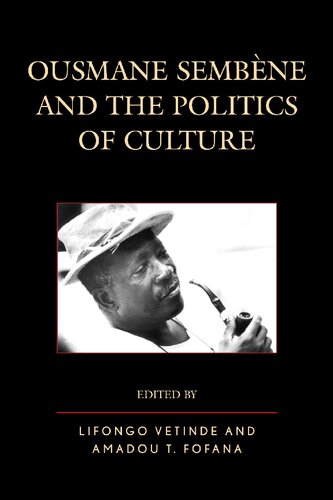

Most ebook files are in PDF format, so you can easily read them using various software such as Foxit Reader or directly on the Google Chrome browser.
Some ebook files are released by publishers in other formats such as .awz, .mobi, .epub, .fb2, etc. You may need to install specific software to read these formats on mobile/PC, such as Calibre.
Please read the tutorial at this link: https://ebookbell.com/faq
We offer FREE conversion to the popular formats you request; however, this may take some time. Therefore, right after payment, please email us, and we will try to provide the service as quickly as possible.
For some exceptional file formats or broken links (if any), please refrain from opening any disputes. Instead, email us first, and we will try to assist within a maximum of 6 hours.
EbookBell Team

5.0
110 reviewsThe schemas of reading applied to Sembene's oeuvre (novels, short stories and films) have, in the main, focused either on his militant posture against colonialism, his disenchantment with African leadership, or his infatuation with documenting the past in an attempt to present a balanced and nuanced view of African history. While these studies, unquestionably contribute to a better understanding of his works, they collectively ignore Sembene’s relentless preoccupation with culture in his entire career as a writer and filmmaker.
The collection of essays in Sembene and the Politics of Culture sets out to fill that gap as the contributors at once foreground Sembene’s fixation on the centrality of culture in the articulation of the discourse of national consciousness and reevaluate his intellectual and artistic legacy within an overarching framework of African liberation.
The contributors critically reassess the ideological underpinnings of Sembene’s thoughts, his role as one of the foundational pillars of African cultural production, and his relevance in current discourses of nationhood. They do so through a wide variety of interdisciplinary approaches that draw on linguistics, feminist theory, film theory, historiography, Marxist criticism, psychoanalysis and a host of other approaches that give novel insights in the critical analysis of the works under study.
In the part entitled “Testimonies," a collection of conversations with people who worked closely with Sembene, each of the interlocutors provide illuminating insights into the man's life and work. The variety of themes and critical approaches in this critical anthology will certainly be of interest not only to students and scholars of African literature and cinema at vario